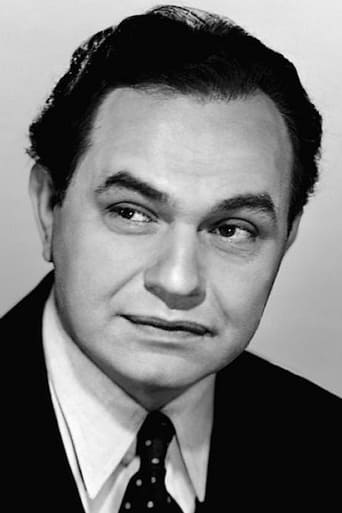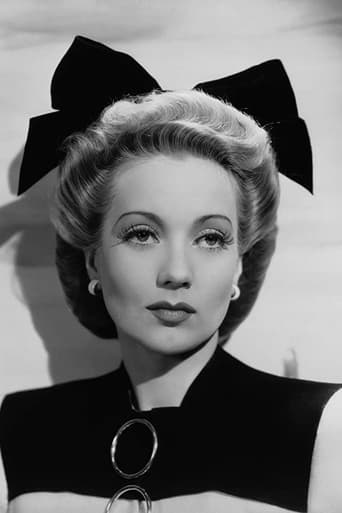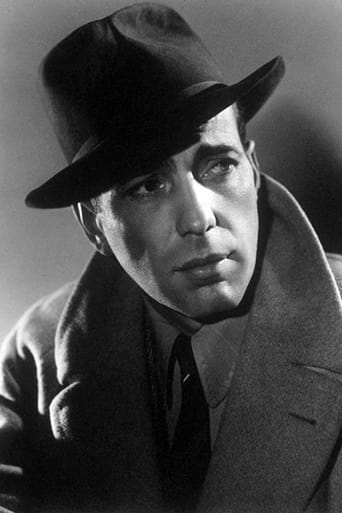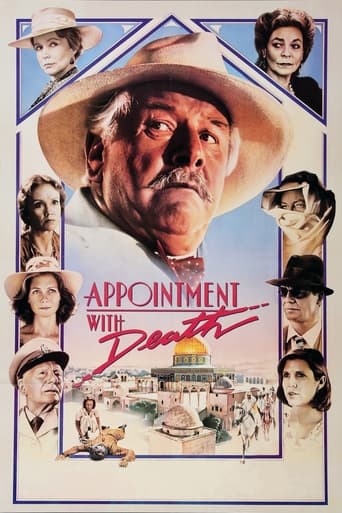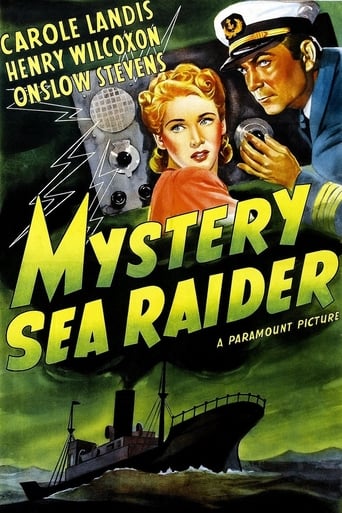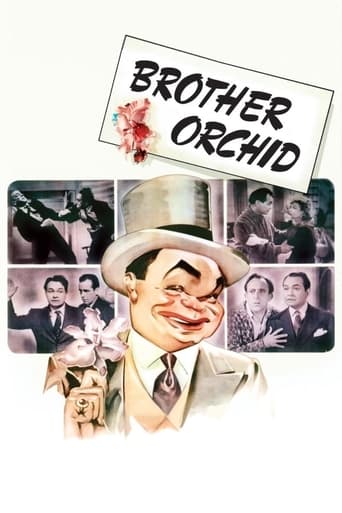
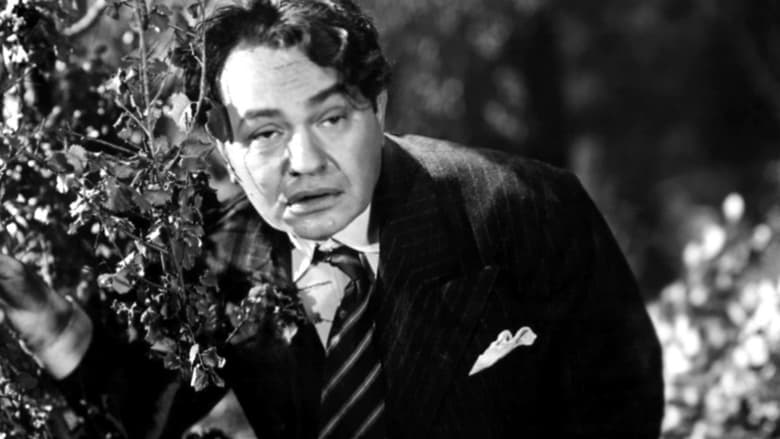
Brother Orchid (1940)
When retired racket boss John Sarto tries to reclaim his place and former friends try to kill him, he finds solace in a monastery and reinvents himself as a pious monk.
Watch Trailer
Cast
Similar titles
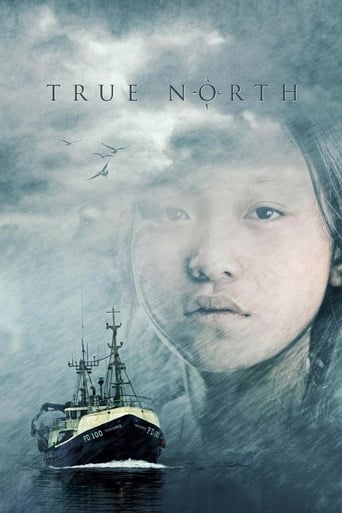

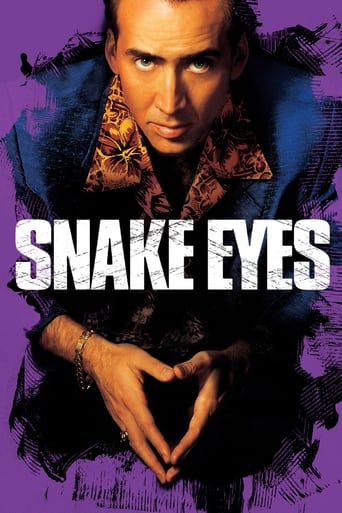

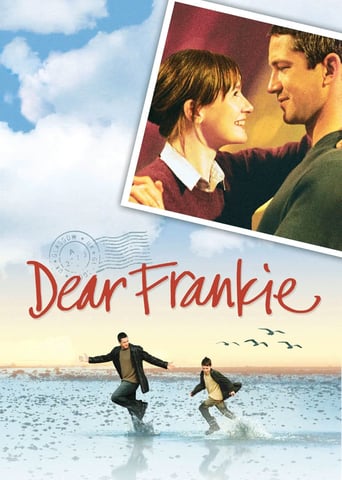
Reviews
Good films always raise compelling questions, whether the format is fiction or documentary fact.
Very good movie overall, highly recommended. Most of the negative reviews don't have any merit and are all pollitically based. Give this movie a chance at least, and it might give you a different perspective.
It is an exhilarating, distressing, funny and profound film, with one of the more memorable film scores in years,
The film may be flawed, but its message is not.
Copyright 8 June 1940 by Warner Bros Pictures, Inc. New York opening at the Strand: 7 June 1940. U.S. release: 8 June 1940. Australian release: 15 August 1940. 91 minutes. SYNOPSIS: Racket chieftain Little John Sarto, after a trip to Europe in search of "class," returns to find his mob taken over by his former associate, Jack Buck. Sarto organizes a new gang and muscles into his old territory. His girl friend, Flo Addams, attempting to promote peace between the rival factions, inadvertently sends Sarto into a trap. NOTES: In 1940, Edward G. Robinson held 4th place to Errol Flynn, James Cagney and Bette Davis as the most popular Warner Bros stars at foreign ticket-windows. TO SUM UP: Good idea, but disappointing. COMMENT: Tired gangster pic. The familiar ingredients are all here but so familiar and so jaded has the formula become that neither the director nor the scriptwriter can make up his mind whether to play it straight or for laughs. The players were obviously told to play it safe on a sort of middle ground where they are not tongue-in-cheek enough to be funny nor sufficiently straight to be taken too seriously. The only players unaffected by this are Jenkins and Bellamy, both of whom give their usual comic performances (though even Bellamy is more serious than usual). Bogart's role is small and though he is supposed to be the villain of the piece, he doesn't play with all stops out as usual, but gives a rather half-hearted portrayal. The main burden of the film falls on Sothern and Robinson. It is obvious that most of their scenes together should be played for comedy, but they are both so heavy-handed the laughs don't come.Significantly enough, Bacon's direction is only worthy of note in the one sequence that is played perfectly straight - Robinson fleeing from Buck's hired gunmen, the camera tracking with him through the undergrowth until he stumbles across the courtyard of the monastery, the sequence concluding with an elaborate crane shot. Even the climactic fight confrontation, with its comic caretaker ringing the cops, does not seem meant to be taken seriously (why do the cops arrest Bogart and his gang - they weren't the ones who were breaking the law?). Elsewhere the direction is routine.Credits display the usual brand of Warner Bros craftsmanship but production values are moderate.OTHER VIEWS: Ably photographed, but a good cast is wasted on a piece of hokum that steers a disconcertingly uncertain course between straight melodrama and outright burlesque. - JHR writing as George Addison.
Enjoy this movie for two good reasons right off. Edward G. Robinson and Humphrey Bogart. Then, take in the movie as a time capsule enjoying the sights, sounds and slang's of that era. That's what I like about these older movies. You get to see how things were in that generation and in this case that's nearly 80 years ago. The plot is comedy mixed with gangsters and Hollywood never knows how that will be received until after the fact. In this case, the stars and supporting cast pull it through making it a recommendation not to be missed. There are a few scenes that do trigger the emotions and there is nothing you can do about them but to let them have their way. A good movie does this. I like to eat when I watch movies.I recommend a sandwich with a tasty drink followed by some sweet munch for this one...Enjoy Edward G's mannerisms, facial expressions and tones of voice for he had fun doing them. I had fun receiving them....
I agree with another writer on this thread that this should have been a better film - but it suffered from a poor script.Until he became a major star (possibly Hollywood's biggest star) in the 1940s, Humphrey Bogart was doomed to rarely be more than a movie menace. Prior to HIGH SIERRA and THE MALTESE FALCON a role like his horse trainer in DARK VICTORY or his frightened stooge of a Klan group in BLACK LEGION were rarities. Most of his roles were villains. Against Cagney in THE ROARING TWENTIES and THE OKLAHOMA KID. Against Flynn and Randolph Scott in VIRGINIA CITY. And definitely against Eddie Robinson in KID GALAHAD, THE AMAZING DR. CLITTERHOUSE, and this film. As we will see, it is a little odd that he got cast as a thuggish villain so often (even with his harsh if handsome presence), particularly in a film like BROTHER ORCHID.For Bogie happened not to be born in a city ghetto like Cagney, or raised in one like Robinson. He was born in an upper class background, the son of a society doctor. In fact, in his early stage training, he appeared in society comedies. Reputedly he was the first young actor to pop up in such a play through the garden doors into the crowded parlor, racket in hand, saying "Tennis, anyone?" Actually (and ironically, as he hated it) the film that closest mirrored his early years was SABRINA, which Bogie did not make until the 1950s.On the other hand, his more successful fellow Warner Brothers actor, Eddie Robinson, relished a chance to alter his public image. Having achieved movie stardom as Rico in LITTLE CEASAR, Robinson constantly tried to get out of movie gangster-dome. Sometimes he succeeded (like his biography films such as A DISPATCH FROM REUTERS and DR. EHRLICH'S MAGIC BULLET) but more frequently the gangster film was altered - particularly the "comic ones". CLITTERHOUSE, for example, has a whimsical premise of a society doctor gathering material for his opus on the criminal mind by becoming one. Better examples are THE WHOLE TOWN IS TALKING, whereas a befuddled little clerk is constantly dragged into crime by his resemblance to a crime kingpin, or A SLIGHT CASE OF MURDER (wherein beer baron Remy Marko has a whole slew of problems to straighten out in one afternoon).BROTHER ORCHID takes off on a different slant regarding Robinson. A Roumanian (and Jewish) immigrant, Emmanuel Rosenberg happened to be pretty well read and educated, and continued showing interests in books and art all through his life. He was far from the "Ricos" he played on screen. Put another way: when he played "Wolf Larson" in THE SEA WOLF, the character personifies "Social Darwinism". Robinson could have critiqued "Social Darwinism".Naturally this culture business may have amused the Warners, and they had already lampooned it in an earlier Robinson film LITTLE GIANT, wherein (again looking for class) Robinson discovers that social position does not make a person nice or decent. There it was the family of Berton Churchill, all seeing him as a sucker to unload worthless stock on. In BROTHER ORCHID it is a gangster who finds that it is a whole change in his life's attitudes that is needed to gain real class.Robinson does a "Johnny Torrio" Act. He leaves his enterprises in the hands of his able lieutenant Bogart, while he takes a long trip to try to acquire class. Instead he slowly gets ripped off by every con-man and salesman who sees him coming. Finally he returns from Europe, and decides to resume his old job. But Bogie is well planted in the seat of power (as Al Capone was when Torrio retired), and Robinson finds his girlfriend (Anne Southern) has married rancher Ralph Bellamy (sort of a flip side to Bellamy's Oklahoma lover in THE AWFUL TRUTH). Bogie, seeing Robinson is trying to force his way back, has the latter taken for a ride and shot. But he is dumped on the grounds of a monastery run by Donald Crisp. Robinson is nursed back to health, and slowly begins to appreciate the finer things of a quiet, spiritual life.The problem of the script is that Robinson's second half should have emphasized his discovering spirituality. Actually the script began to do that at the best moment in the film, when Robinson is almost thrown out of the order due to violating a rule, and protests that it was just a momentary mistake on his part. Crisp decides to give him another chance. His growing abilities to work with flowers in the monastic garden (the title is his name due to his abilities with orchids) could have been used to expand on. Instead the film has to resume the gang warfare - the monastery's income is threatened by Bogie's mob, and Robinson (with Southern and Bellamy's help) beat Bogie's men. That's fine, but it threw aside the triumph of a real type of class that Robinson was finding. Possibly had the writers seen fit to have Bogart avoiding capture by the police because of Robinson and the monastery giving him a temporary sanctuary the story line could have been straightened out, with Bogart wondering in the end if he had really gotten the better of the deal. But unfortunately that was not done here.It is a moderately entertaining film, but it might have been a more meaningful one.
Edward G. Robinson shines in this unusual picture about Johnny Sarto, a mob boss who's greatest desire is to live in "real class"--a goal shared by so many self-made men. After making his fortune in the rackets, he departs for Europe, to live high on the hog and enjoy the first-class life. But, at every turn, it eludes him.Out of money, he returns to his native land, to find his #2 man (Humphrey Bogart) has usurped his position, and is willing to kill to keep it. Wounded and on the lam, he winds up at a monastery, where he is nursed back to health.Amongst the servants of God, he is tutored in the gentle arts of sharing and self-sacrifice. In one touching moment, the brothers are elated that the sales of their flowers will earn them a little extra money to buy a watermelon for dessert. A moment later, when the same money is spent to buy shoes for a local child, Sarto asks about the expected watermelon. "Watermelon?" Brother Superior (Donald Crisp) says in shock, "I never developed a taste for it!" Sarto (Robinson) slowly smiles, "I get it...".Lured back to his old life by a newspaper headline detailing his fiancee (Ann Sothern)'s betrothal to a Texas cowboy (Ralph Bellamy) Robinson sets matters straight, and shows much of the same self-sacrifice he has learned in his 'retirement'. In one touching scene, he gives all of his money to cleaning woman and walks away without a cent to his name.It's easy--and incorrect--to see this as a 'gangster movie' when the real purpose is to show the value of good works. While set in a film-noir world, Brother Orchid is an enchanting lesson about how the simple things in life are the best. As Robinson remarks in the final scene, "I always thought class came with having the right clothes or the right car. But this--this is the REAL class!"

